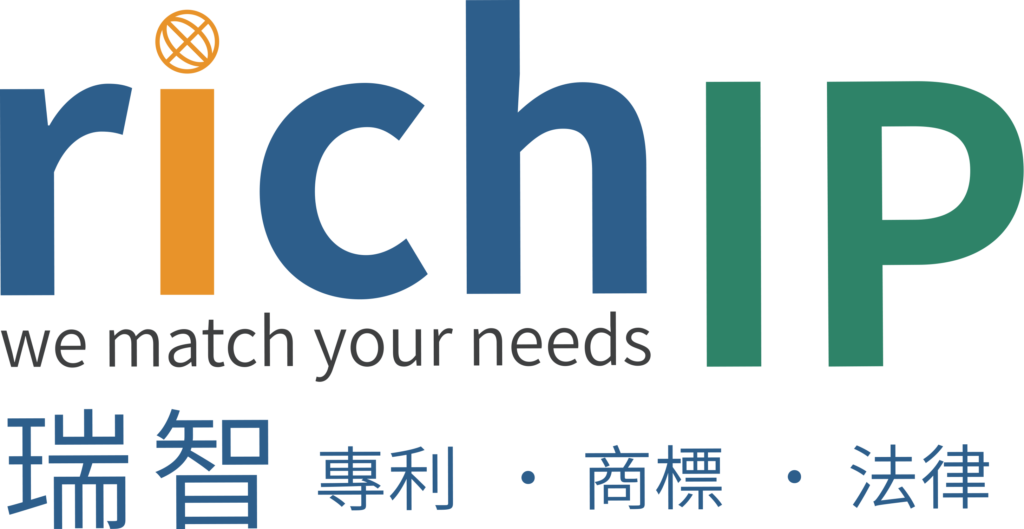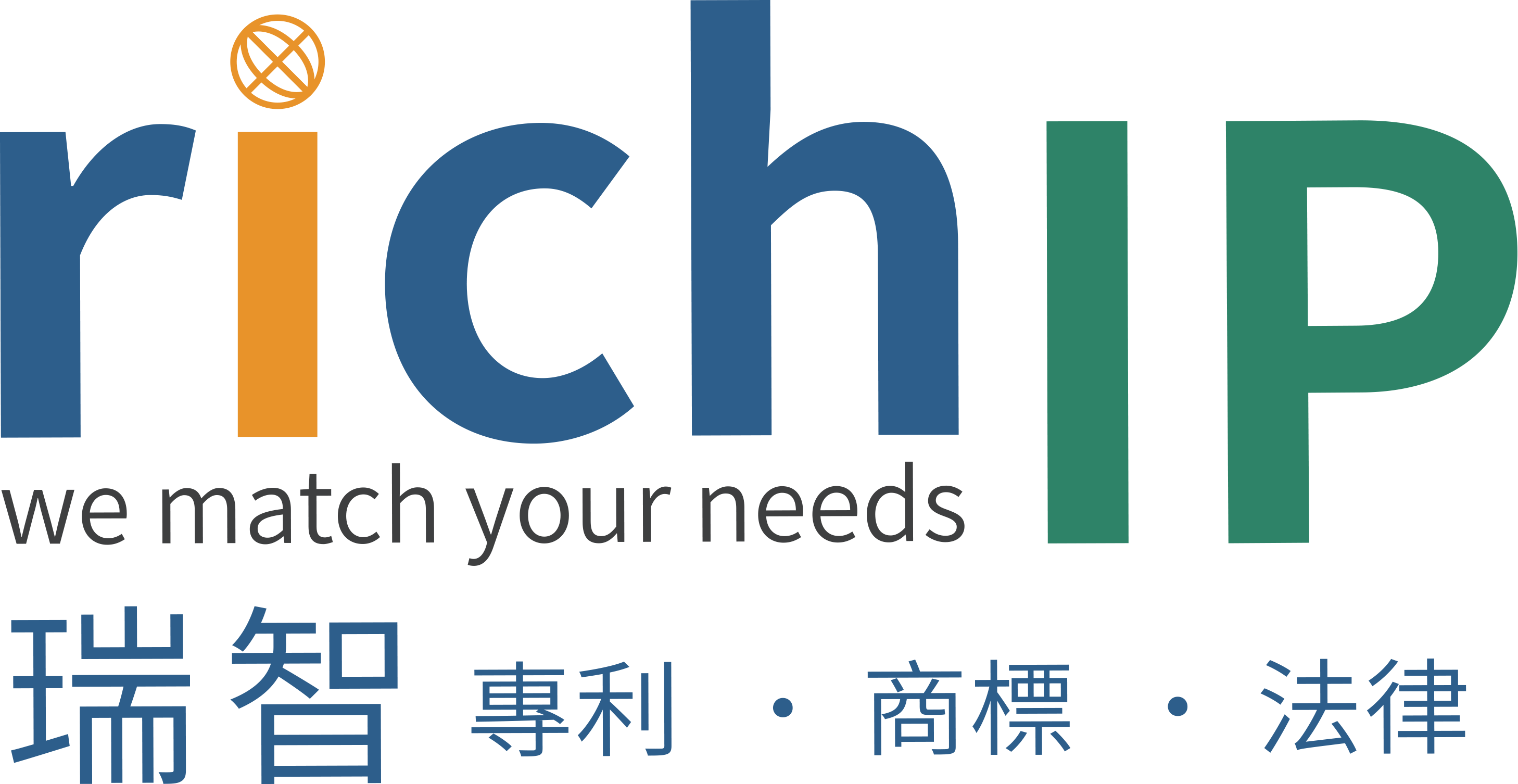News Topics
I. [US] Change to Definition of Receipt Date of Electronic Submissions of Patent Correspondence
II.[JP] Japan, China, South Korea joint Intellectual Property Symposium
III.[KR] South Korea expands the scope of protection for design patents
IV.[US] PPH Pilot Program Between the USPTO and INPI of France
I. Change to Definition of Receipt Date of Electronic Submissions of Patent Correspondence
Up to now, 37 C.F.R. (Title 37 – Code of Federal Regulations), Section 1.1 has defined that the receipt date of patent correspondence submitted electronically is the date on which the patent correspondence is received by the USPTO at the correspondence address in Alexandria, Virginia. This is because the physical servers for receiving electronic submissions are located in Alexandria.
The USPTO is in the process of providing servers in other locations such as Manassas of Virginia, and thus proposes to amend the original definition of the receipt date of electronic submissions of patent correspondence to “the date in the Eastern time zone of the United States (Eastern Time) when the USPTO received the patent correspondence.” This change can avoid that the receipt date of electronic submissions of patent correspondence depends on the location of physical servers.
More details can be found Here.
Dr. Cross Liu
Executive Manager of RichIP Group
 
II. Japan, China, South Korea joint Intellectual Property Symposium
On October 26, 2021, the Intellectual Property Association of Japan (IPAJ), the China Intellectual Property Society (CIPS), and the Korea Institute of Intellectual Property (KIIP) jointly organized “Japan, China, South Korea joint Intellectual Property Symposium” through online conferences.
According to an academic cooperation agreement signed by IPAJ, CIPS, and KIIP in 2012, the Symposium will be held by different host countries every year. The commissioner of the Japan Patent Office (JPO), Mr. Mori Kiyoshi gave a welcome speech at the opening of the conference. Afterward, several official experts and scholars from Japan, China and South Korea conducted discussions and exchanges of opinions on intellectual property in three stages.
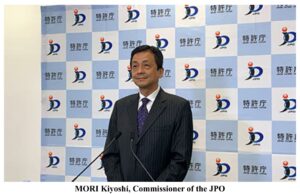
Beneficiaries
Any applicant who has filed an invention patent application involving “prospective technologies” and has been notified by the TIPO that the application will undergo substantive examination, but has not yet received any Office Action (examination opinions), can benefit from the pilot program.
The First Stage:
Mr. Tomoki Sawai, director of the Japan Office of the World Intellectual Property Organization (WIPO) delivered a speech on the topic of “Environment, Intellectual Property, and WIPO GREEN policy”.
The Second Stage:
Experts and scholars from the three countries gave speeches on the common topic of “ESG (Environment, Social, and Governance) and Intellectual Property Rights”, respectively. Mr. Kazunari Sugimitsu, the expert from Japan, presented “Japanese ESG Investment and Intellectual Property”, Mr. Wenxuan Chen, the expert from China, presented “Enterprise’s Patent Management and Resolution for International Disputes”, and Mr. Yonghee YOON, the expert from South Korean, presented “ESG-related legal issues and corporate strategy”. After the presentations, the experts and attendees continued a discussion dealing with the above three topics.
The Third Stage:
Mr. Tomokaz Saito, the expert from Japan, presented “Practices and Issues of AI/Data Contract “, Professor Feng Xiaoqing from China, presented “Intellectual Property Strategy and theory for Chinese enterprises”, and Mr. Woong KIM, the expert from South Korean, presented ” GUI (Graphical User Interface) design patents based on the Korean Design Patent Law”. After the presentations, the experts and attendees continued a discussion dealing with the above topics.
There were 283 guests attended the Symposium including patent attorneys, lawyers, business men and practitioners in the field of Intellectual Property and the seminar ended with great success.
Takeaway
Japan, China, and South Korea are all major economies in Asia and also the Asian countries receiving the most patent applications each year. Through researches and publications by experts and scholars, Japan, China and South Korea may exchange opinions and intelligence and extend positive influence over Asian countries.
WIPO GREEN was proposed by WIPO for the purpose to provide solutions for accelerating deploying and planning Green Technology between developing countries and developed countries. While global social issues are becoming more and more obvious, ESG investing has become an important trend in the global investment markets. At present, investors in many industries have integrated ESG sustainable investing into the company’s business strategy. When the companies aim for long-term development, whether ESG can be included in the main project is one of the main reasons for investors and the public to evaluate the company’s risks.
With the epidemic of COVID-19, various industries in the world in “post-pandemic era” would face huge impacts due to various bans imposed by countries around the world. The pandemic not only caused a serious setback in the tourism industry but also affected many other industries. Hence, the economy of most countries declined due to the pandemic last year, and the global carbon emissions and energy demand decreased. However, the pandemic has slowed down with the increase in vaccine coverage, and the issues related to alternative energy technology and the related legal issues will once again be paid attention to by various countries.
As a result, it is necessary to go beyond the national framework to solve various global problems such as environmental problems, through the sharing of information by experts and scholars from different countries, and discussion together over various issues raised by industry,official and university. This “Japan, China, South Korea joint Intellectual Property Symposium” is of great significance to Asian countries,and it is expected that more influential countries in Asia will participate the same activities in the future.
References
Hyperlink: Japan, China, South Korea joint Intellectual Property Symposium (in Japanese)
Hyperlink: WIPO GREEN (in Japanese)
Jason hung
Patent Counselor of RichIP Group
 
III. South Korea expands the scope of protection for design patents
The Korean Intellectual Patent Office (KIPO)amended the Korean Design Protection Act to protect the image design such as holograms image, augmented reality image, and virtual reality image, the Act was implemented from October 21, 2021.
In the past, the images for registration must be implemented via an article. In the amended Design Examination Guidelines (see Chapter 1, Part VI, Paragraph II), the images used to operate equipment or display functions of device can be registered. That is, the images could be expressed on the wall, road, human body or in the space. For example, the images for manipulating which is projected from the smart bracelet to the wrist (see Fig. 1), the virtual keyboard projected in the space (see Fig. 2), and the images projected on the road for driver to read driving information (see Fig. 3).
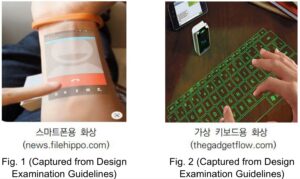
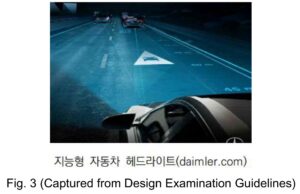
Those images merely for viewing, which are not provided for operating or do not display functions of device, such as TV images, landscape photos, cannot be recognized as image design. Besides, the design expressed on the screen should be regarded as a partial design of the product and cannot be recognized as “image design” under the law.
Our Proposals
With the rapid developments of technology, KIPO expects that the scope of design patent protection can be extended to images used in the fields of communication, medical treatment, crime prevention, and health care. Applicant who wants to develop designs in the mentioned fields may actively consider applying the design patents as soon as possible to win a place in the arts.
References
Hyperlinks: Korean Design Examination Guildlines
Chun-Wei Lo
Patent Counselor of RichIP Group
 
IV. PPH Pilot Program Between the USPTO and INPI of France
The Patent Prosecution Highway (PPH) is a program to promote examining efficiency of patent applications.
The applicant may request a later office to accelerate examination of the claim(s) of his/her patent application(s) if he/she has received a positive opinion for the corresponding application from an earlier office. In the procedure, the examiner in the later office is allowed to use the search report and examination results made by the earlier office, thereby reducing workload and duplicated efforts. Accordingly, the application may receive a decision from the later office more quickly.
The PPH pilot program between USPTO and the INPI (National Institute of Industrial Property) of France has commenced on December 1, 2021, and will run for three years, ending on November 30, 2024.
The applicant may submit a PPH request to USPTO based on a patent application that was filed with the INPI on or after May 22, 2020.
References
Chun-Wei Lo
Patent Counselor of RichIP Group
